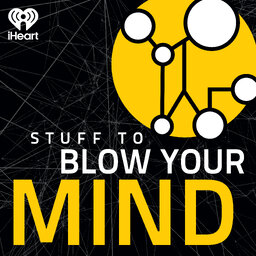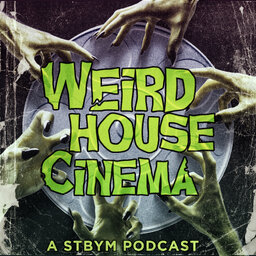Creative Writing Machines, with Mike Sharples
Will computers one day write the great American novel? What will the future of human/machine creative collaboration look like – and what came before now? In this episode of the Stuff to Blow Your Mind podcast, educational technologist Mike Sharples discusses the book “Story Machines - How Computers Have Become Creative Writers.”
In 1 playlist(s)
Stuff To Blow Your Mind
Deep in the back of your mind, you’ve always had the feeling that there’s something strange about re…Social links
Follow podcast
Recent clips

From the Vault: Mystery Cults, Part 3
1:03:47

Weirdhouse Cinema Rewind: Forbidden Planet
1:34:55

From the Vault: Mystery Cults, Part 2
53:07
 Stuff To Blow Your Mind
Stuff To Blow Your Mind